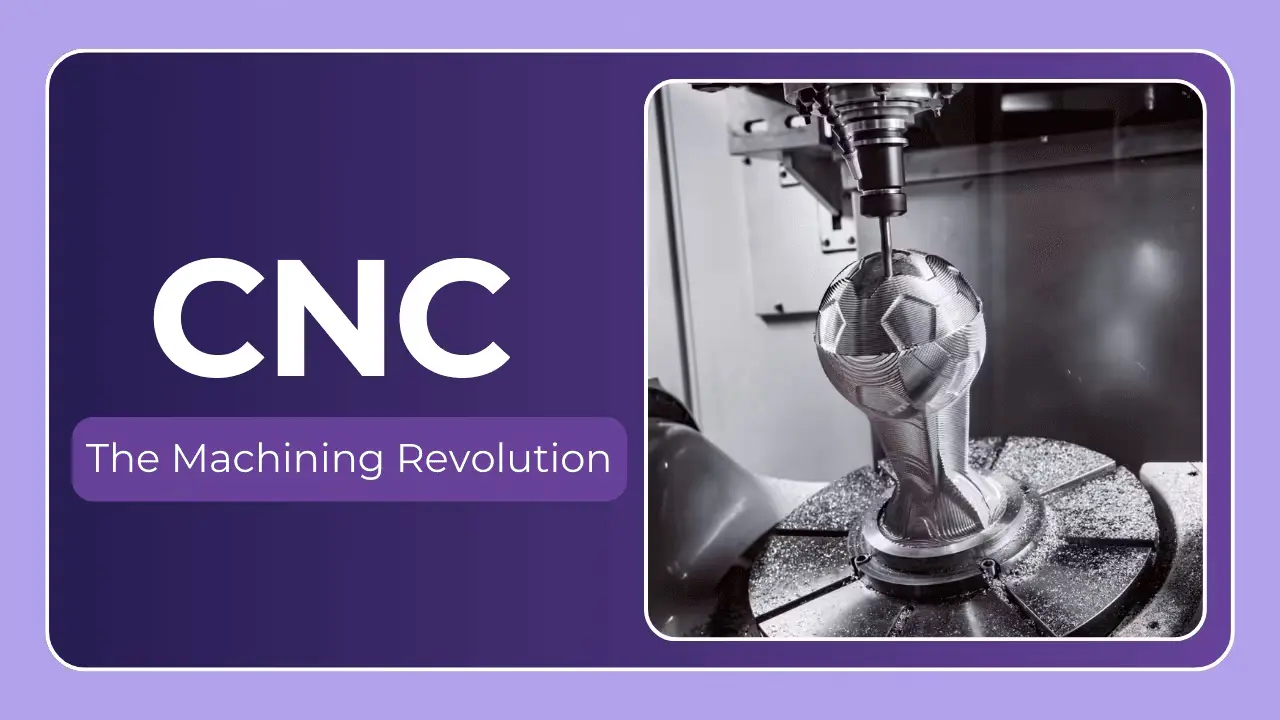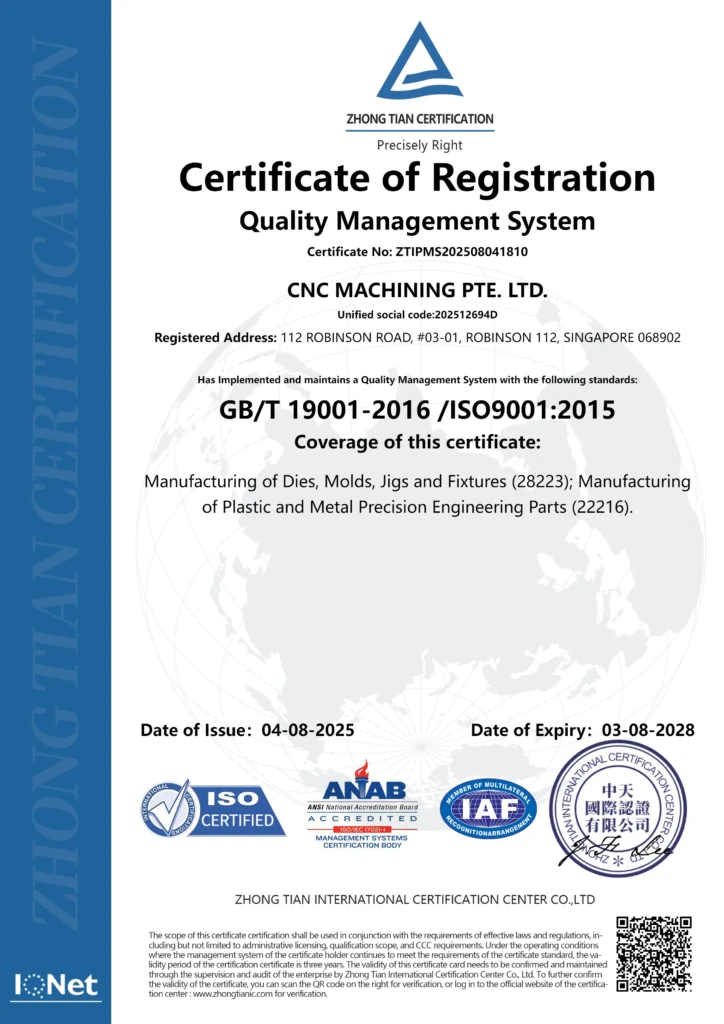Unleashing the Power of 5 Axis CNC Horizontal Machining Centers
In the realm of high-precision manufacturing, 5 axis CNC horizontal machining centers (HMCs) represent a transformative leap in technology. Ideal for producing large-scale, complex components in industries such as aerospace, energy, and automotive, these machines offer unparalleled versatility, efficiency, and accuracy. At Great Light Machining, our advanced 5-axis HMCs redefine what’s possible in multi-axis machining, delivering mission-critical parts with exceptional performance and cost-effectiveness.
What is a 5 Axis CNC Horizontal Machining Center?
Core Definition
A 5 axis CNC horizontal machining center is a sophisticated machine tool that performs simultaneous machining along five axes: three linear axes (X, Y, and Z) and two rotary axes (typically A and B). Unlike vertical machining centers (VMCs), HMCs position the spindle horizontally, which enhances rigidity and optimizes chip evacuation—especially vital during heavy-duty cutting. This configuration allows for deep cavity machining and multi-sided access, making it indispensable for high-volume, complex production.
Key Components
- Horizontal Spindle: Offers increased rigidity, essential for accurate deep cuts and maintaining dimensional stability.
- Rotary Table: Facilitates 360° part positioning, enabling access to multiple surfaces without re-fixturing.
- Pallet Changer: Automates workpiece loading and unloading, significantly reducing downtime.
- High-Pressure Coolant System: Ensures efficient chip removal and maintains tool life during intensive machining operations.
Five-axis CNC horizontal machining center vs. five-axis CNC vertical machining center PK comparison table
Below is a detailed PK comparison table between a five-axis CNC horizontal machining center and a five-axis CNC vertical machining center, along with key technical insights:
| Parameter | 5-Axis CNC Horizontal Machining Center | 5-Axis CNC Vertical Machining Center |
|---|---|---|
| Chip Evacuation | Superior chip evacuation due to the horizontal spindle orientation and gravity-assisted removal, minimizing re-cutting of chips. | Relies on air blasts and secondary chip removal methods, which can be less efficient for heavy or large parts. |
| Part Size & Weight | Ideal for machining large, heavy parts; higher table load capacities allow for handling bulky components. | Suited for smaller, compact parts; typically has a smaller work envelope and lower table load capacity. |
| Rigidity & Stability | Offers increased rigidity for deep cuts and high-speed machining; the horizontal setup minimizes vibration in heavy-duty operations. | Provides excellent rigidity for vertical cuts, though the design may be more limited by column structure and overall size. |
| Setup & Fixturing | Often features automated pallet changers and robust fixturing systems, reducing setup time for multiple part runs. | Typically requires manual or semi-automated fixturing; re-clamping may be needed for multi-sided machining operations. |
| Tool Access & Flexibility | Enables multi-directional access with a rotary table and multiple axes, ideal for complex geometries in a single setup. | Excellent for machining intricate details and cavities but may need additional setups for accessing all surfaces. |
| Machine Footprint | Generally occupies a larger floor area; designed for industrial environments with high production volumes. | More compact, making it suitable for smaller workshops or facilities with space constraints. |
| Typical Applications | Aerospace frames, energy castings, and large automotive parts where robust material removal is required. | Mold cavities, medical implants, and precision electronic components where fine detail and high surface finish are critical. |
| Surface Finish | Often achieves excellent surface finishes with less post-processing due to superior chip evacuation and stability. | Can produce very fine finishes; however, surface quality may depend more on additional finishing steps. |
Summary:
- Horizontal centers excel in heavy-duty, large-part machining with enhanced chip evacuation, rigidity, and automated setups—ideal for industries like aerospace and energy.
- Vertical centers offer superior flexibility for intricate details and are better suited for smaller, high-precision components often used in medical and consumer electronics.
This comparison table provides a clear overview of the key differences between the two machining center types, aiding manufacturers in selecting the right solution based on part requirements, production volume, and available workspace.
Advantages of 5 Axis Horizontal Machining Centers
Precision & Efficiency
5-axis HMCs achieve exceptional tolerances—often as tight as ±0.002 mm—by allowing simultaneous multi-directional cutting. This capability minimizes repositioning errors and reduces cycle times by 30–50% compared to 3-axis machining. The horizontal design enhances chip management, reducing the risk of recutting and extending tool life by approximately 25%.
Material Versatility
These machines excel at processing a wide range of materials, from robust metals like steel, titanium, and Inconel to high-performance composites such as carbon fiber-reinforced polymers (CFRP). Their capability to handle diverse materials makes them particularly attractive for industries requiring both strength and precision, such as aerospace and energy.
Cost Savings
Automation in 5-axis HMCs significantly reduces manual labor and re-fixturing needs. This not only cuts down on production time but also minimizes waste. In high-volume production, the reduced setup times and increased throughput result in substantial cost savings, making these centers a compelling choice for large-scale operations.
Key Applications of 5-Axis Horizontal Machining
| Industry | Use Cases | Material |
|---|---|---|
| Aerospace | Engine casings, landing gear, structural frames | Titanium, Inconel 718 |
| Automotive | Transmission housings, EV battery trays | Aluminum 6061/7075 |
| Energy | Turbine blades, valve bodies | Stainless steel (17-4 PH) |
| Medical | Surgical robots, imaging equipment | PEEK, stainless steel |
These applications illustrate how 5-axis HMCs are engineered to tackle the most challenging manufacturing demands with precision and efficiency.
How to Choose a 5 Axis CNC Horizontal Machining Partner
6 Critical Selection Criteria
- Machine Specifications:
Verify true 5-axis simultaneous machining capability, high spindle power (40+ HP), and robust table load capacity (≥2,000 kg). Compatibility with leading CAM platforms like Siemens NX or Mastercam is essential. - Quality Assurance:
Look for certifications such as ISO 9001 and AS9100, and ask for CMM inspection reports to ensure machine calibration and part quality. - Industry Experience:
Prioritize manufacturers with sector-specific expertise, particularly in processing exotic alloys or composite materials. - Customization & Scalability:
Ensure the manufacturer can adapt to hybrid machining techniques and scale production from prototypes to high-volume orders. - Post-Processing Capabilities:
Comprehensive one-stop services—including anodizing, heat treatment, and precision finishing—are a strong indicator of overall quality. - Customer Support & Pricing:
Transparent pricing models, responsive technical support, and competitive lead times (e.g., rapid prototyping in 5–7 days) are critical.
Why Partner with Great Light?
Great Light leverages state-of-the-art HMCs like the Mazak HCN-6000 and DMG Mori NHX 6300, ensuring unmatched precision and material versatility. Our end-to-end solutions, from DFM analysis to post-processing, combined with fast turnaround times and transparent pricing, provide a complete package for high-performance manufacturing.
Technical Comparison: Horizontal vs. Vertical 5-Axis Machining
| Parameter | 5-Axis HMC | 5-Axis VMC |
|---|---|---|
| Chip Evacuation | Superior, aided by gravity and horizontal orientation | Requires additional air blasts for effective removal |
| Part Size | Ideal for large, heavy parts | Better suited for compact components |
| Rigidity | Higher stability for deep cuts | Limited by vertical column design |
| Typical Use | Aerospace frames, energy castings | Mold cavities, medical implants |
Overcoming Challenges in 5 Axis Horizontal Machining
Common Issues & Solutions
- Tool Deflection:
Utilize stubby toolholders and adaptive toolpaths to mitigate deflection. - Thermal Deformation:
Implement advanced coolant chillers and real-time monitoring systems to control temperature fluctuations. - Programming Complexity:
Leverage AI-driven CAM software that automatically adjusts for potential collisions, ensuring efficient, collision-free tool paths.
Cost Management Strategies
- Batch Machining:
Combine multiple parts on a single pallet to maximize machine utilization. - Tool Life Optimization:
Use IoT-enabled predictive maintenance to extend tool life and minimize downtime.
Future Trends in 5-Axis Horizontal Machining
The future of 5-axis HMCs is driven by hybrid additive manufacturing, AI-driven automation, and sustainable practices. Manufacturers are increasingly integrating 3D printing with traditional machining to produce near-net-shape parts that require minimal finishing. Additionally, IoT and digital twin technologies are paving the way for self-adjusting machining parameters, significantly reducing waste and energy consumption. Energy recovery systems and biodegradable coolants further enhance the sustainability profile of modern machining centers.
Get Your 5 Axis CNC Horizontal Machining Quote Today
Great Light Machining offers:
- Precision: Achieve tolerances as tight as ±0.002 mm.
- Speed: Enjoy 30% faster lead times compared to industry averages.
- Expertise: Benefit from ISO-certified machining of aluminum, titanium, and composite materials.
- One-Stop Services: From design to post-processing, our comprehensive solutions ensure flawless production.
Start Your Project: Upload your CAD file for a free instant quote and experience the future of precision manufacturing.
Conclusion and Actionable Insights
Selecting the right 5 axis CNC machining center manufacturer is critical for high-performance production. By evaluating technical capabilities, industry experience, customization options, and quality control measures, you can ensure that your investment delivers superior precision and efficiency. With advanced technologies such as AI-driven optimization and IoT-enabled maintenance, manufacturers like Great Light provide comprehensive, scalable solutions that meet the demands of modern industries.
Take Action Now: Partner with Great Light to unlock unparalleled quality, speed, and cost-efficiency in your manufacturing process. Upload your design today to receive an instant quote and take the first step toward transforming your production capabilities.





